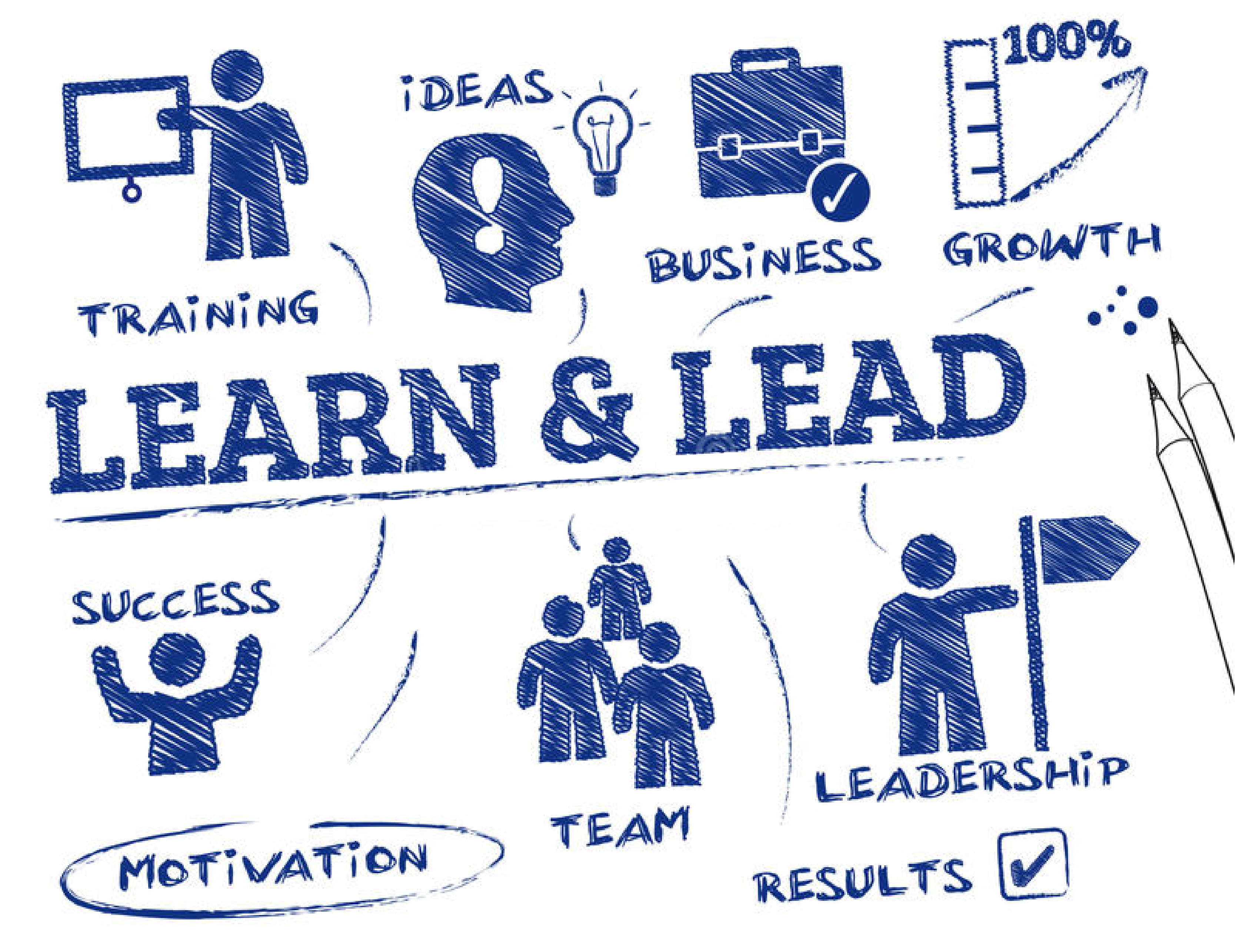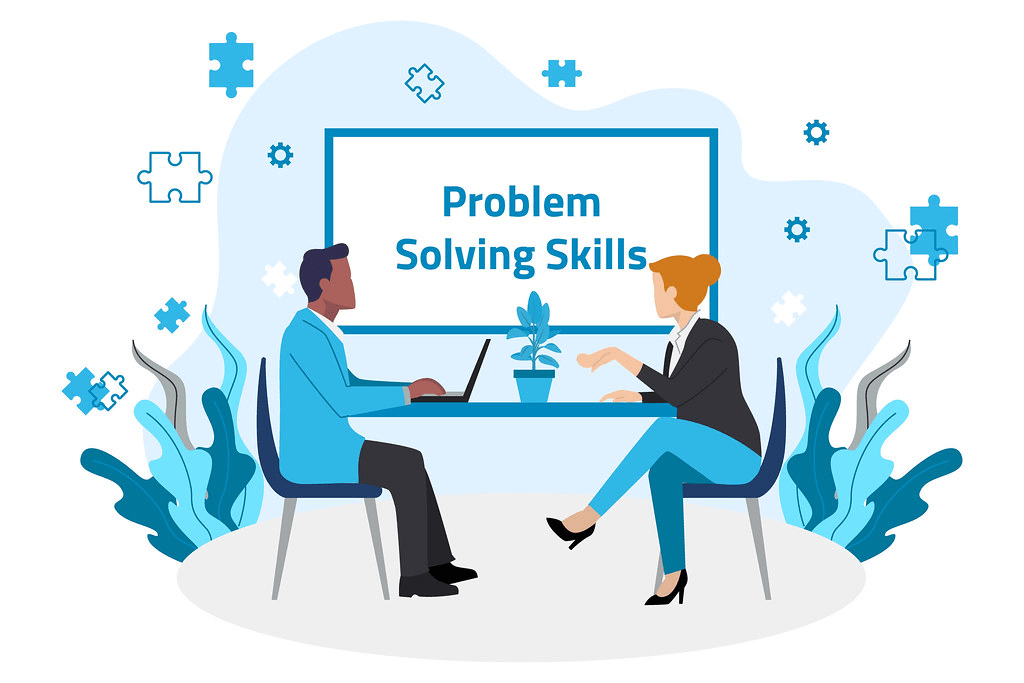You’ve probably heard about Executive Skills plenty of times. You may have sat in meetings about how important management skills are, been to conferences that discuss leadership, or maybe have had some HR training about being a more sensitive manager. While all these things are important, there are many Executive Skills that you may not have had training on or may just be intricate parts of management that can’t be taught at a conference. I would like to go through and highlight some of these less talked about executive skills and bring their importance forward.

As you read through these executive skills, remember that no executive is perfect and we must each strive to improve. You may be strong in some and weak in others, but as you consider your skills, strengths, and weaknesses, remember that being a great executive and manager means knowing that you don’t have to do it all and choosing when to delegate.
Leadership
Being an executive does not necessarily mean being a leader. However, being a great leader can help make you a better executive. Just because you or someone you know has ended up in an executive position does not mean you/they know how to be a great leader. Oftentimes, it has more to do with your job performance and skills. But, being placed in a management and executive position means being held as an example for those around you and on your team(s). When everyone is already looking to you for answers and examples, great leadership skills can help you excel and elevate your entire team alongside you.
On the other hand, maybe you’ve been an executive for a while and feel that things have started to slow down or team members are harder to keep track of than they used to be. It is important to remember, that leadership is not a static trait; it requires continual growth and development. Successful executives recognize the importance of honing their management skills over time and investing in ongoing learning and self-improvement initiatives.

Emotionally Intelligent Management
At the heart of good executive leadership lies emotionally intelligent management, which transcends mere task delegation by delving into the intricacies of human emotions and motivations. Understanding the individuals comprising your team, their strengths, weaknesses, and aspirations, forms the bedrock upon which strong leadership is built.
Emotionally intelligent management involves a deep appreciation for the nuances of human interaction. It entails giving feedback, conducting performance reviews, and providing tailored training programs to nurture employee development and growth. Regardless of the presence of a designated HR department, leaders must possess a keen understanding of people, recognizing that each individual brings a unique set of experiences and perspectives to the table. This understanding extends to cross-cultural competency, wherein leaders demonstrate a willingness to embrace diversity and inclusivity, fostering an environment where all voices are heard and valued.
Creating emotionally intelligent management, however, begins with strong, ethical leadership. Ethical leadership is paramount in establishing trust and credibility within the organization. Integrity, dependability, responsibility, and accountability are buzzwords but also much more, they are guiding principles that underpin every decision and action taken by effective leaders. By embodying these ethical values, leaders inspire confidence and loyalty among their team members, fostering a culture of transparency and mutual respect.

Strategic Communication
Strategic communication is an important tool for effective leaders, even if you may not think about it very often. Clear and concise communication is essential for articulating vision, aligning team members, and driving organizational objectives forward. With strategic communication, leaders can inspire and motivate their teams to achieve exceptional results, even in the face of adversity.
Strategic communication is also key to great networking, which plays a pivotal role in advancing one’s career trajectory. Building a robust network within and outside an organization opens doors to new opportunities and fosters professional growth. Networking goes beyond mere acquaintance; it involves cultivating meaningful relationships founded on trust, reciprocity, and mutual benefit. By actively participating in industry events and professional groups and by leveraging social media platforms, leaders can expand their influence and forge valuable connections that propel their careers forward.
If you need help training managers to be leaders, try Executive Coaching with WBC.
Problem-Solving
Effective problem-solving is not merely a skill; it’s an art form that distinguishes exceptional leaders from the rest. Problem-solving can be a vital skill in many different situations within business, from organization to marketing. As an executive, however, the ability to work through uncertain situations with grace and a level head is paramount. The best way to be ready to solve problems in the heat of the moment is to develop your problem-solving skills with everyday tasks. Here are some skills and mindsets that a good executive should have or develop to help with problem-solving, but for more ideas check out my blog post on problem-solving in business.

Strategic Thinking
A good place to start developing better problem-solving skills is developing a strategic thinking mindset. At its core, strategic thinking is the ability to look long-term and make decisions that benefit long-term goals, rather than thinking only about short-term necessity. It involves thinking beyond the present and embracing a mindset of innovation and continuous improvement. Leaders must challenge the status quo, encourage experimentation, and embrace calculated risks to stay ahead of the curve.
It’s important to focus on the idea of calculated risks. You never want to get stuck into a specific situation or mindset. You should always be improving. However, strategic thinking is about evaluating what will and will not help you in the long term and using those ’calculations’ to take risks that will take you and your business to the next level.
Furthermore, effective strategic thinking requires alignment and collaboration across all levels of the organization. Leaders must communicate the vision, engage stakeholders, and rally the team toward a common purpose. Using strategic thinking and bringing your organization together, you can be a better executive prepared to lead yourself and others through uncertainty with confident problem-solving skills, steering your organization toward sustainable success.

Conflict Resolution
Tensions and conflict are inevitable in any organization, but how leaders handle it can make all the difference. Conflict resolution is not about avoiding disagreements but rather about addressing them constructively to encourage collaboration and harmony.
First and foremost, leaders must create an environment where open communication is encouraged, and differing viewpoints are respected. This will help create a culture of safety where team members feel comfortable expressing their opinions without fear of retribution.
When conflicts arise, leaders should adopt a collaborative approach to resolution, facilitating constructive dialogue and seeking win-win solutions. This may involve mediating discussions, clarifying misunderstandings, and finding common ground among conflicting parties.
Leaders should strive to understand the motives and emotions driving the conflict and address them with sensitivity and tact. Effective conflict resolution requires emotional intelligence, empathy, and active listening. When striving to implement good conflict resolution strategies, you will create a culture of mutual respect and understanding with your employees. Effective executives can turn conflicts into opportunities for growth and innovation within their companies.
For guidance on specific conflict resolution strategies, I recommend checking out Crucial Conversations and Subtle Acts of Exclusion.

Crisis Management
No one is ever truly ready for a crisis, but developing skills that will be crucial to crisis management can be a powerful tool for any executive. Crises demand swift and decisive action, whether it’s a sudden market downturn, a product failure, or a global pandemic. Leaders must remain composed under pressure, swiftly assess the situation, and chart a course of action to mitigate the impact.
During crises, communication becomes paramount. Leaders must keep stakeholders informed, instill confidence, and foster a sense of unity toward overcoming adversity. This involves not only disseminating information but also actively listening to concerns and feedback from all parties involved.
Moreover, effective crisis management requires a proactive approach to risk assessment and contingency planning. Leaders must anticipate potential threats, develop response protocols, and ensure the organization’s resilience in the face of adversity. Although it is impossible to plan for every contingency, many plans can be made using your problem-solving skills. For specific ideas, check out my blog post about preparing your crisis management plan or work with a Business Coach.
Goal-Setting
Setting goals is often essential for both personal and professional growth. Goals provide direction, motivation, and a sort of roadmap to help you succeed. However, achieving those goals requires more than just setting them. It requires discipline, perseverance, and the ability to manage your time effectively. As an executive, you are not only setting goals for yourself but also for your team and your entire business. Learning how to set achievable goals and making them a reality for everyone can be a hard journey, but two important aspects that can help you get started are time management and patience.

Time Management
Although often overlooked as a skill for executives, time management is far more important than you might think. Time is a finite resource, and how we choose to allocate it will make all the difference in our success. Effective time management allows us to prioritize tasks, set realistic deadlines, and get as much done as possible.
Prioritizing tasks is the first step in effective time management. Not all tasks are created equal, and some will have a greater impact on your goals than others. By identifying the most important tasks and tackling them first, you can ensure that you’re making progress towards your objectives.
Setting realistic deadlines is equally important. While setting ambitious deadlines to push yourself is tempting, unrealistic expectations can lead to burnout and frustration. Instead, break down your goals into smaller, more manageable tasks, and set challenging yet achievable deadlines.
It can often be hard to decide what business tasks are and aren’t important. Working with a Business Coach can help you define your priorities.
Patience
Patience is not just a virtue but a strategic asset in optimizing productivity. Achieving your goals takes time, effort, and persistence. It’s easy to get discouraged when things don’t happen as quickly as we’d like, but patience is essential for staying focused and motivated.
Patience allows us to stay committed to our goals, even when progress is slow or setbacks occur. Rome wasn’t built in a day, and neither are our biggest achievements. By staying patient and trusting the process, we can overcome obstacles and keep moving toward our goals. To help yourself stay patient, it’s essential to celebrate small victories along the way. Recognizing and acknowledging your progress no matter how small can help you stay motivated and inspired to keep pushing toward your goals.

Business Development
Executives are the leaders in the company, as such understanding the skills of successful business development is very important. This begins with a strategic approach that encompasses a multitude of elements. Crafting a business plan is the cornerstone, providing a clear roadmap for achieving organizational objectives. Moreover, understanding different business structures and their implications is crucial for making informed decisions that lay the groundwork for sustainable growth and success.
Business Planning and Organization
Just as setting goals is essential to your personal and professional development, a business plan is essentially dozens of goals for the business that are vital for its development. It not only outlines the mission, vision, and goals of the organization but also delineates the strategies and tactics required to achieve them. From market analysis to financial projections, every facet of the business is meticulously addressed, providing both stakeholders and executives with an understanding of the company’s direction and objectives.
As you create a business plan, choosing the right business structure is a decision that can have profound implications on the organization’s operations, taxation, and legal obligations. Whether opting for a sole proprietorship, partnership, corporation, or limited liability company (LLC), each structure comes with its own set of advantages and disadvantages. By carefully weighing these factors and aligning them with the organization’s goals and objectives, businesses can make informed decisions that pave the way for long-term success. For more information visit our partners at Asset Equalizers.
If you are or may soon be an executive or manager, consider developing these less talked about skills and traits. From leadership and problem-solving to time management and business development, each skill plays a vital role in professional success. As a leader, they also affect everyone that you work with and can influence the culture of an entire company as you lead and manage your team(s). By embracing continuous learning and growth, executives can unlock their full potential and propel their careers to new heights, taking their team(s) and company with them. Remember, investing in executive skills isn’t just about personal development; it’s about driving organizational excellence and shaping the future of business.
Need more personal advice and planning for developing your Executive Skills?